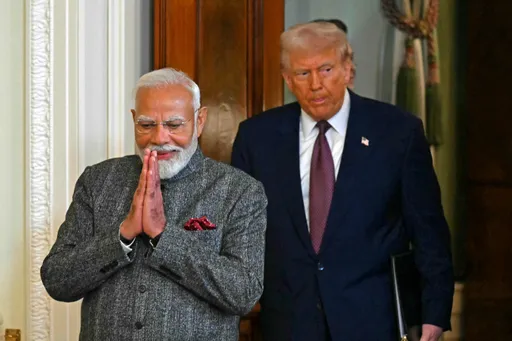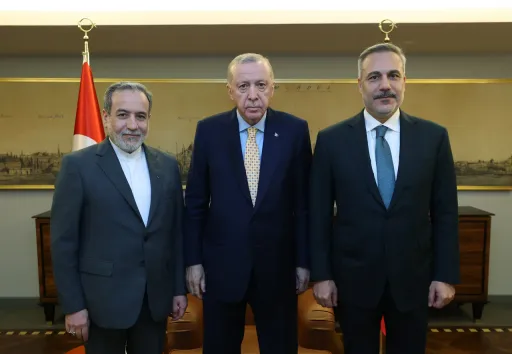By Millicent Akeyo and Sylvia Chebet
South Africa is bristling at what it perceives as bullying by the US after President Donald Trump reopened an old wound by calling into question the country's new land expropriation law.
"Terrible things are happening in South Africa," Trump alleged recently. "They are taking away land, they are confiscating land, and actually they are doing things that are perhaps far worse than that."
South Africa pushed back hard against the statement. "We will not be bullied," declared President Cyril Ramaphosa.
The presidential spokesperson, Vincent Magwenya, clarified that South Africa does not have racist ownership legislation.
"All our laws take their cue from our Constitution," he said, insisting that the land expropriation law was meant to address historical racial disparities rather than be used as an instrument of confiscation.
A historical wrong
Land ownership in South Africa carries the weight of generations of pain.
In 1913, British colonial rulers banned black people in South Africa from owning or leasing land as part of their systematic dispossession and segregation policies.
As Advocate Tembeka Ngcukaitobi puts it, "Apartheid was not just a political system, it was also an economic system, and it created an economy of its own kind by locking black people out from participation."
Statistics illustrate this painful reality. White farmers, who make up just 8% of South Africa's 63 million people, own about three-quarters of the country's land.
This hasn't changed much since apartheid officially ended in 1994.
This January, President Ramaphosa signed the Land Expropriation Act that empowers the government to take over private land — including without monetary compensation — if the exercise is considered "just and equitable and in the public interest".
Academic and strategist Ongema Mtimka believes Trump missed the mark by some distance when he picked on South Africa. He believes this is nothing but politics at play.
"It is very clear that Trump is playing the card of coercive diplomacy, which the US has played throughout history when it comes to governments that do not do its bidding on the foreign policy front," he tells TRT Afrika.
"We do know that South Africa has had foreign policy choices that were not favoured by the US in recent years, starting with the Russia-Ukraine war, taking Israel to the International Court of Justice, as well as its involvement in BRICS. All of these are seen by the Trump administration as intolerable alliances."
Contentious legislation
While the new law is designed to serve a specific purpose, opinion is divided within South Africa over the government's intent and execution.
Kallie Kriel, who leads the NGO AfriForum that speaks mainly for Afrikaners says Trump's actions were to be expected following the enactment of the new land policy.
"You don't have to be an economist to know that if you infringe on property rights, it will scare away investors. It will create enemies in countries that feel strongly about the free market. And that is exactly what happened when President Ramaphosa signed the Expropriation Act," he says.
South Africa's Leader of the Opposition, John Hlophe of the MK Party, accuses AfriForum of harming the country's interest by spreading false information abroad.
"Treason has been committed…they are plotting against our government," he says.
"First of all, they lied and said their farms have been confiscated…there have been killings, and their land was confiscated, which isn't true. So, based on those lies and fraudulent misrepresentations, Trump issued an executive order against South Africa."
Rhetoric of asylum
Besides threatening to withhold aid to South Africa, the Trump administration proposes to grant refugee status to white South Africans in the US.
The response from groups representing South Africa's white minority has been, "Thanks, but no, thanks."
Orania Movement that advocates the right to self-determination of Afrikaners, sees American posturing on the issue as needlessly condescending.
"Our reaction to this is very clear," it tells TRT Afrika.
"We believe Afrikaners are indigenous to Africa; we belong in Africa. We don't want to be a protected minority group or be refugees in somebody else's country."
AfriForum's Kriel rejects the idea of refugee status in the US for white South Africans.
"We don't want to move elsewhere. We are not going to ask our children now to move to another country. The fact is, our ancestors worked hard to make sure that we, as a people, form the southern tip of Africa. We are not going to disrespect that."
Ripples elsewhere
As much as Trump's rancid criticism of South Africa has drawn global attention, the land reform process is being closely watched by other nations grappling with similar historical inequities.
The government emphasises that the new law is aligned with global standards for property rights while addressing unique local challenges.
"We will speak with one voice in defence of our national interests, our sovereignty, and our constitutional democracy. By standing true to our values, harnessing our unique strengths and endowments, and forging a common purpose, we can turn these trying circumstances to our advantage," President Ramaphosa said in his official statement.
Some would say Trump's criticism might do what years of reconciliation work couldn't — unite South Africans to protect their shared national interests.
As South Africa works through this mix of old afflictions and new politics, the world watches to see if fixing land ownership can heal the past without creating fresh wounds.




























